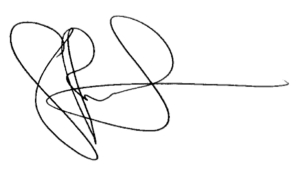Last night, as the Omer was counted, we began the second week, the week dedicated by the mystics to gevurah—to strength. And while we often think initially of brute strength, or physical strength, gevurah in our tradition has other connotations as well. Dr. Alan Morinis, founder of the Mussar Institute, teaches that gevurah can also—or perhaps, more importantly—mean restraint, discrimination, limitation, discipline, judgment, discernment, and the ability to draw lines, or boundaries.
The Omer begins, the mystics teach, with the aspect of chesed, Divine lovingkindness, boundless and overflowing. It is, our rabbis teach, the beginning and end of Torah too. It is, perhaps, the Torah’s central teaching. Why, then, must we move on? Why not stay only in love?
Anyone who has parented or been parented knows that sometimes, saying no—drawing a line, setting a boundary—can be an act of love. Dr. Becky Kennedy, the “millennial parenting guru” whose podcast draws millions of listeners, reminds her audience often that boundaries are not selfish; they are self-preservation. Boundaries do not damage relationships; they strengthen and save them. Gevurah, this sort of strength, is an act of chesed: It is a way to show lovingkindness in the world.
There are beautiful teachings along these lines throughout our tradition, ancient midrashim written about the very creation of the world. Dr. Morinis says much the same thing, from a mussar perspective, rather than one of psychotherapy. He writes:
And so gevurah, though perhaps at first blush far less attractive than chesed, has its crucial role to play in our lives. When we manifest too little gevurah, we are creating a world that is too soft, too unclear. And if we bring too much gevurah into the world, then we are creating a reality that is rigid and unbending and, because of that, brittle. Our ability to say “no” comes from gevurah. Love without judgment is like Jello without the bowl. It’s just a jiggling mess.
That is true between humans, and that is true between humanity and the Divine. And perhaps nowhere is this more clear than as Shabbat begins: God says, “No,” and offers us the same. And in that “no”—the one we might say to our lesser urges, to our most material desires, to the buzzes and beeps of our devices—what are the yeses we might hear, and the love we might feel?
Shabbat Shalom,

Rabbi Sari Laufer
